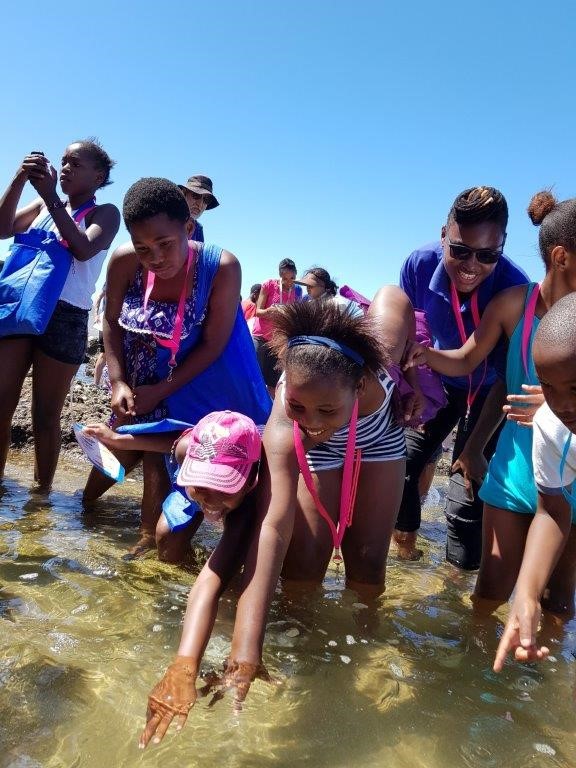When Autone Mululuma began advocating for ocean protection in Zambia, the response was often baffled curiosity.
“We are landlocked. How does this matter to us?”
It’s a question he enjoys answering, often using it to open minds.
As a High Seas Youth Ambassador and founder of Zambia for Ocean, Mululuma turns it into an entry point for broader conversations, reframing ocean conservation as not just a coastal issue, but a continental one.
“The ocean’s health is our health,” he told participants during the recent 32nd Tipping Points webinar hosted by Oppenheimer Generations Research and Conservation (OGRC).
He recalled how, in 2023, Zambia was hit with one of its worst dry spells in recent memory.
The source of the crisis? An ocean phenomenon thousands of kilometres away.
“It was attributed to the El Niño,” Mululuma said. “It impacted our agricultural systems, our livelihoods, our food security . . .”
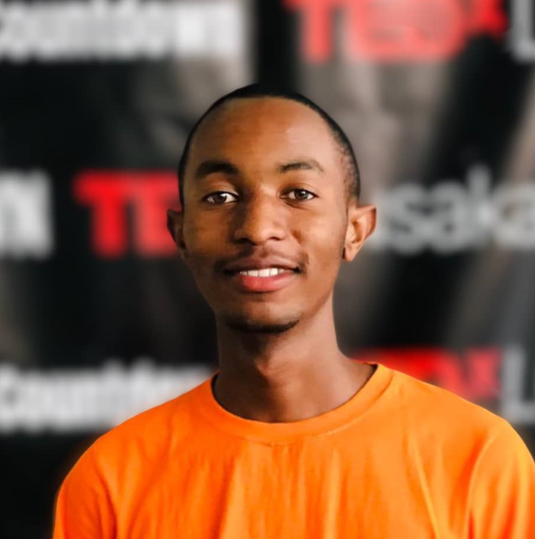
Joining Mululuma on the panel were Zandile Ndhlovu, founder of the Black Mermaid Foundation in South Africa, and Olusola Adeoye, head of the Coast and Ocean Programme at Nature Cares Resource Centre in Nigeria.
Facilitated by Dr. Kendyl Wright, a leading Marine Protected Area scientist at WildOceans, the webinar challenged assumptions about who the ocean belongs to, who is responsible for its future, and who gets to speak for it. From Lusaka to Lagos to Cape Town, their message was clear: Africa’s youth, coastal and inland alike, must be at the heart of that conversation.
Though Zambia is far from any coastline, Mululuma insists it is deeply connected to the sea, explaining how it impacts the country’s climate, sustains its people and their livelihoods, and vital supply chains that stock food shelves.
El Niño
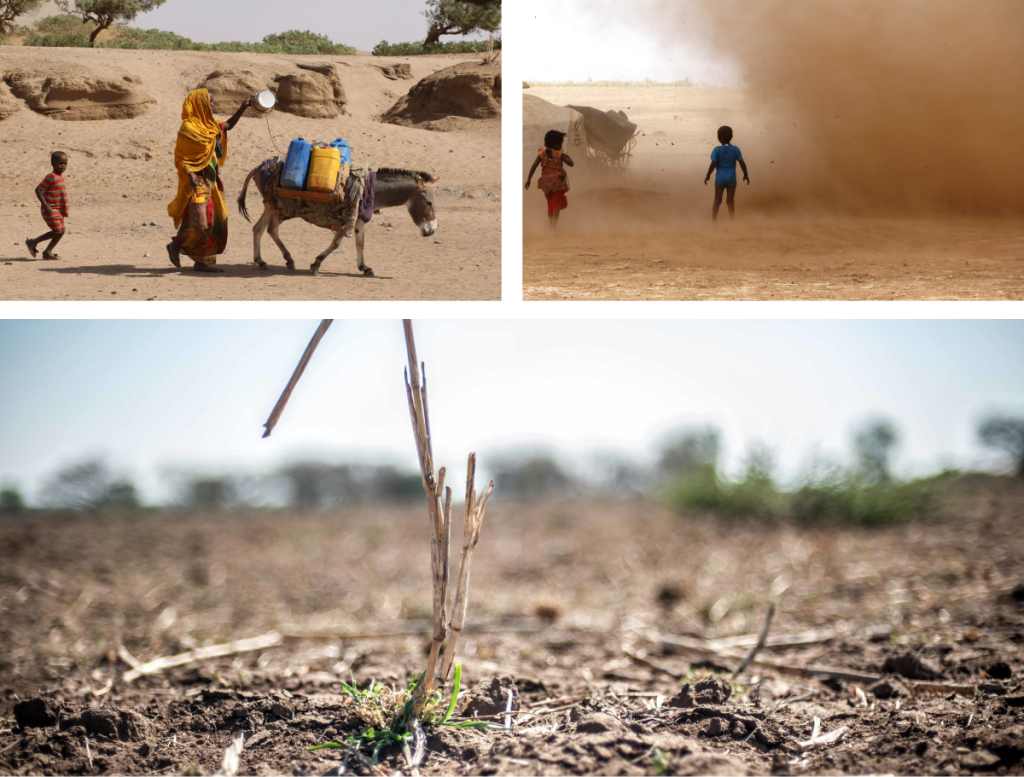
Mululuma said while the severe 2023 El Niño event had vividly illustrated how ocean phenomena reverberate across borders — with real human costs — a lot more needed to be done to raise awareness of the ocean’s ecosystems role and impact on people’s lives.
Discussions on this issue, he said, were mostly confined to elite spaces — negotiation tables, academic conferences, and international forums.
“When you go down to the community, where the effects of climate change are being felt very severely, there’s no conversation on how the ocean contributes to the problems we face—or how it could help solve them,” he said.
Vague classroom content
Recalling his own experiences, Mululuma said that in Zambian schools, ocean content appeared briefly, if at all. “It’s vague… just there and here and there. It wasn’t so in depth.”
Through Zambia for Ocean, Mululuma is now working to change that. His team engages schools and communities, aiming to build what he calls “deliberate inclusion of ocean literacy everywhere.”
He stresses that Zambia’s ties to the ocean aren’t just ecological — they’re economic.
“Most of the products that we have in Zambia — about 39% — are imported and ferried over the ocean,” he said.
And that connection carries responsibility, said Mululuma, referring to how shipping, oil spillages and other disasters at sea, greatly impact on ocean biodiversity.
Pollution links
Landlocked countries also contributed to marine pollution.
“We have a polluted river which feeds into the Zambezi River, and greatly into the Indian Ocean,” Mululuma said. “This builds a chain of pollution from inland areas into the ocean.”
He’s also learning new dimensions of ocean science himself—like the role of coastal vegetation in climate regulation.
“I was amazed when I found out that seagrass has the potential to actually capture more carbon than the Amazon forest,” he said.
Still, for all the science, Mululuma believes change will come from people — especially youth.
“Young people are the tipping point for change in our generation,” he said. They are resilient, not easily co-opted into the system.
Mululuma is calling for youth inclusion in linking global policy to local action.
“They have the power to bridge the gap between issues that seem distant and bring them closer to home,” he said.
And ultimately, he added, it was children and youth who would be worst affected by climate change. “The ocean can help cushion those impacts.”
From fear to guardianship
Mululuma’s message resonated with Zandile Ndhlovu, founder of the Black Mermaid Foundation, which works to connect young people with the ocean — particularly those from “black and brown” communities who have grown up near the sea but cut off from it.
The Sowetan-born Ndhlovu is one of South Africa’s first Black female free divers. In her younger days, she would never have imagined her fear of the ocean turning into a deep sense of connection.
Her story features in Free Range Humans, a Corona Studios series profiling eight individuals who left conventional lives behind to pursue more meaningful connection with the outdoors.
It was a chance snorkel dive while on holiday from a corporate job in Johannesburg that set it all in motion. [WATCH here]
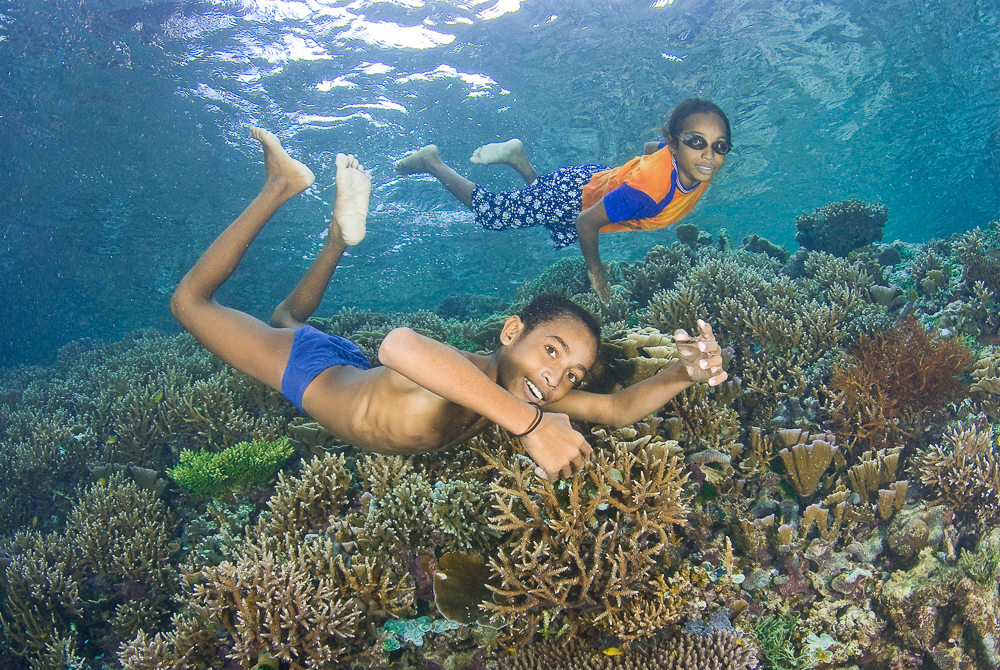
Inspired by her ocean experiences, Ndhlovu went on to establish the Black Mermaid Foundation to improve access to the wonders of the ocean.
“Once you can bridge from fear to connection, you can inspire guardianship,” said Ndhlovu.
Through its work, the foundation helps unlock curiosity and care for the sea — and, in turn, opens doors to opportunities once never imagined.
Still, the marine science field remains relatively elitist.
‘Helicopter science’
Ndhlovu criticised the prevalence of “helicopter science” — research that parachutes into rural communities, collects data, and leaves without involving local people in the process, the jobs, or the decision-making.
“People in the community end up in the lowest forms of access to work,” she said.
And it’s time to move beyond superficial references to indigenous knowledge, she argued. Instead, it should become a guiding framework — a way to rethink how conservation is practiced, funded, and shared.
She recalled what her grandmother once told her: “Nature doesn’t come before us. We have always been good stewards to her. She takes care of us, and we take care of her.”
Ndhlovu also challenged the framing of certain communities as “resource poor” — a label she sees as both inaccurate and damaging.
“We’ve never been resource poor,” she said firmly. “That’s not how we see ourselves in Africa.”
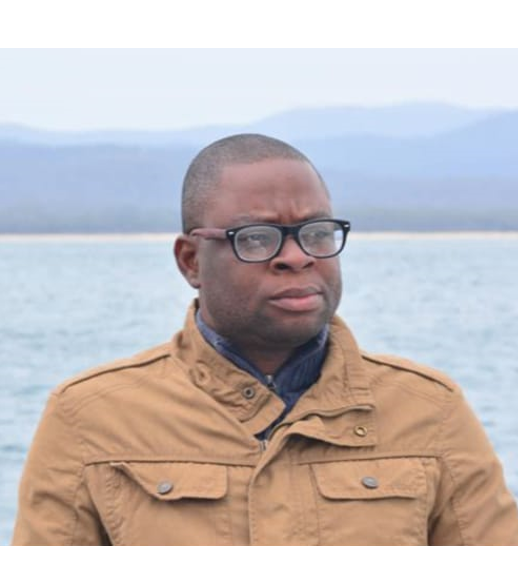
Reflecting on experiences in Nigeria, Olusola Adeoye brought urgency to the conversation. As head of the Coast and Ocean Programme at Nature Cares Resource Centre in Lagos, he’s watched fish stocks dwindle and local livelihoods strain under pressure.
“We saw the collapse of the cod fishery in Canada,” he said. “We’re seeing the vanishing tuna stocks in West Africa. Before what we have access to today becomes a thing of the past — we need to act.”
He noted that small-scale fisheries support more than 90% of coastal communities in Africa, yet many operate with “not a single protected area.”
He warned against top-down conservation models that exclude the people who depend on the ocean the most.
“We always believe that we, the so-called experts, have the solution,” he said. “And then the community just has to take whatever we offer.”
Adeoye believes communities aren’t just part of the solution; they are where the solution begins, not merely “a box to tick”.
And like Mululuma and Ndhlovu, he sees youth as key players — not future leaders, but present actors.
“They’re doing the conservation,” he said. “Doing the mapping of the ocean, the mangroves, collecting basic data for official management. They are using technology and developing indigenous solutions to African problems.”
In closing, Ndhlovu was equally upbeat.
“The youth,” she said, “are showing up in ways we’ve never seen before, and I think that’s powerful. That’s a place of hope.” – Roving Reporters
Kemunto Ogutu is a Kenyan-based correspondent for Roving Reporters. This article was produced with assistance from Jive Media Africa, science communication partner of Oppenheimer Generations Research and Conservation.



